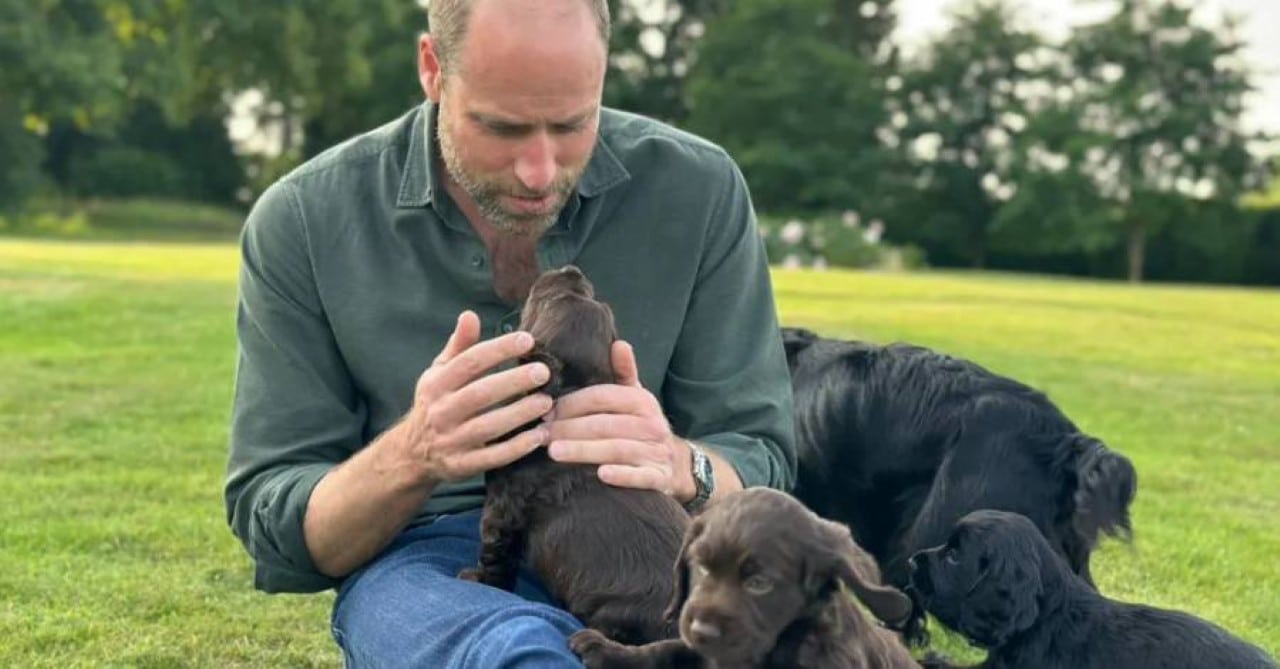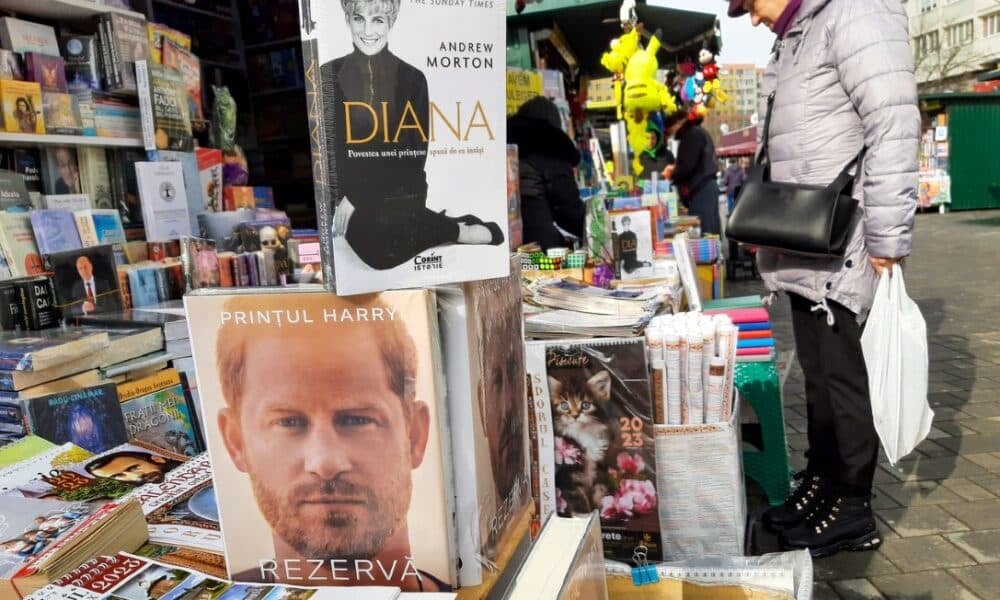Share
Tweet
Share
Share
Nearly three decades after her death, Princess Diana continues to profoundly influence the lives of her sons, Princes Harry and William, as revealed in a recent interview with Patrick Jephson, Diana’s former private secretary, published by People magazine Hawkins magazine. Diana, who tragically passed away in 1997 at age 36 in a car accident in Paris, left a legacy of authenticity, generosity, and service that continues to guide the brothers, now 40 and 43 years old, amid ongoing tensions within the British royal family. Her teachings, marked by humanitarian actions and an innovative approach to monarchy, shape Harry and William’s decisions, despite the rift that has separated them since 2020.
The values instilled by Diana, such as compassion and commitment to social causes, remain evident in the princes’ initiatives. Harry, living in the United States with his wife Meghan Markle, focuses on issues like mental health and AIDS advocacy, while William, the heir to the throne, dedicates himself to projects addressing homelessness. Their mother’s influence, which sought to balance royal life with closeness to the public, serves as a guide for both, even in a context of strained relations.
Diana’s lessons: She took her sons to shelters and amusement parks, fostering a connection to everyday life.
Current projects: William leads initiatives against homelessness; Harry focuses on mental health.
Family ties: The rift between the brothers persists, but Diana’s legacy remains a unifying factor.
Legacy of a unique princess
Princess Diana revolutionized the image of the British monarchy by prioritizing empathy and closeness with the public, an uncommon approach in the rigid structure of royalty. Patrick Jephson, who worked with her for years, emphasized that Diana left “valuable examples and important warnings” for her sons. He stressed that she believed public affection and the rewards of royalty must be earned through sacrifice and service. This perspective, according to Jephson, continues to guide Harry and William in their choices, whether in philanthropy or in how they raise their own children.
Diana made a point of providing her sons with simple experiences, such as visits to fast-food restaurants and amusement parks, to help them understand life beyond the palace walls. This approach shaped how they view their responsibilities. William, for instance, has taken his children, George, Charlotte, and Louis, to community events, while Harry instills values of equality and empathy in Archie and Lilibet.

Prince William – Foto: PA MEdia
Life beyond royalty: Diana took her sons to ordinary places to teach humility.
Impact on grandchildren: The princes replicate their mother’s approach with their own families.
Humanitarian values: Diana prioritized causes like AIDS and housing, which her sons continue to champion.
Rift between brothers
The relationship between Harry and William has faced challenges since Harry stepped back from royal duties in 2020 and moved to the United States. The conflict gained attention with the publication of Harry’s memoir, “Spare,” in which he described a physical altercation with William in 2019, alongside tensions involving Meghan Markle. The couple’s 2021 interview with Oprah Winfrey further exposed disputes within the royal family, deepening the divide.
Despite this, both princes keep Diana’s memory alive through their projects. William, through the Centrepoint organization, works to combat homelessness in the UK, while Harry, via the Invictus Games, supports war veterans and promotes mental health. These efforts reflect the lasting influence of their mother, who always championed humanitarian causes with authenticity.
Living legacy in the princes’ actions
Historian Amanda Foreman, cited in the People article, stated that Diana’s essence is present in how Harry and William raise their children. The princess wanted her sons to grow up with a broader worldview, beyond the royal bubble. This mindset is reflected in the brothers’ choices, as they strive to provide their children with an education rooted in compassion and social responsibility.
William has taken his children to charity events, while Harry and Meghan engage in projects promoting inclusion and diversity. Foreman emphasized that these values are “pure Diana” and represent one of the princess’s greatest legacies. Her influence extends beyond public actions, shaping the princes’ personal lives as well.
Raising their children: Harry and William teach empathy and service to the next generation.
Social projects: Initiatives like Invictus Games and Centrepoint reflect Diana’s spirit.
Authentic life: Both strive to raise their children outside the rigidity of monarchy.
Lasting influence on royalty
Diana brought a new perspective to the British monarchy, challenging traditions and bringing the royal family closer to the public. Her ability to connect with ordinary people, whether through hospital visits or AIDS campaigns, left a lasting mark. This legacy lives on in the efforts of Harry and William, who, despite their differences, follow paths inspired by their mother.
Jephson reiterated that Diana’s “warnings” – such as the need to balance duty with authenticity – are lessons the princes carry forward. He believes that by studying their mother’s life, Harry and William find guidance to navigate the challenges of modern royalty. The princess, he says, still comforts and inspires them, even after so many years.
Projects that perpetuate Diana’s memory
The princes honor their mother’s legacy in distinct but complementary ways. William, as the future king, maintains a more traditional role but incorporates Diana’s sensitivity into his actions. Harry, free from royal obligations, has greater flexibility to address issues like mental health and equality, causes Diana also embraced.
Among their notable initiatives are William’s Heads Together campaign and Harry’s Invictus Games. Both reflect a commitment to issues Diana deemed essential. Additionally, the brothers participate in events honoring their mother, such as the Diana Award, which recognizes young people making a difference in their communities.
Heads Together: William’s initiative to promote mental health in the UK.
Invictus Games: Harry’s project supporting veterans and promoting inclusion.
Diana Award: A tribute to young people following the princess’s example of compassion.
Ongoing engagement: Both participate in events celebrating Diana’s impact.
A bridge between past and future
Diana’s influence extends beyond her sons to the next generation of royalty. Her grandchildren – George, Charlotte, Louis, Archie, and Lilibet – are being raised in environments that reflect the values she championed. Despite their differences, William and Harry share the goal of raising children aware of their role in the world, with a sense of responsibility that echoes their mother’s lessons.
Foreman highlighted that the greatest success of Harry and William lies in passing on these values. Diana’s authenticity, courage in challenging norms, and dedication to social causes continue to shape the monarchy, even amid change and family conflicts.

